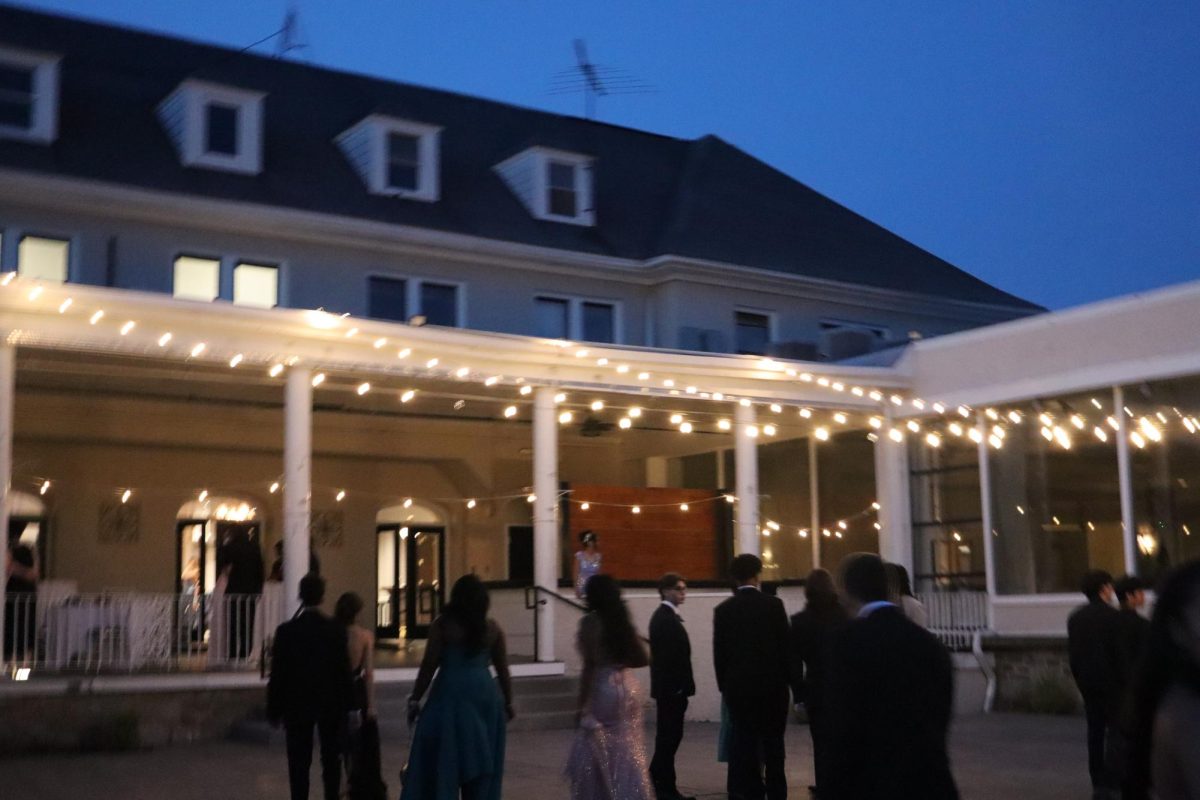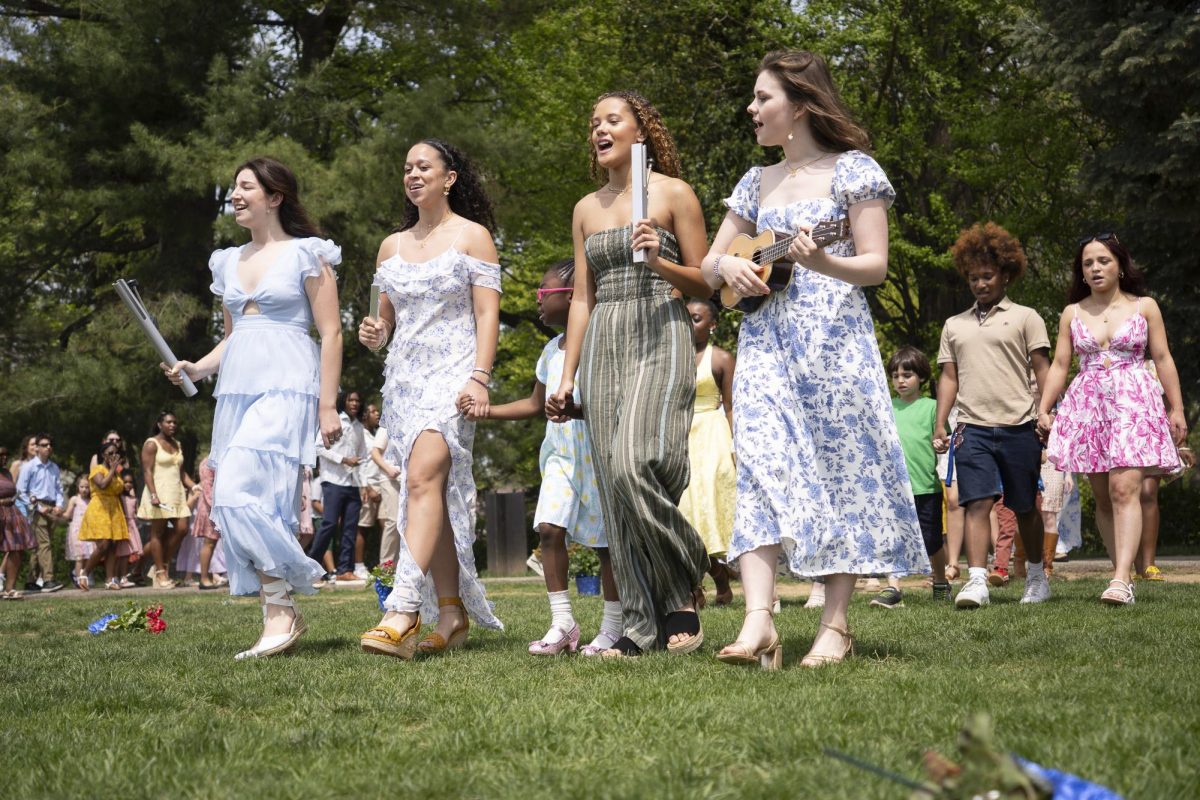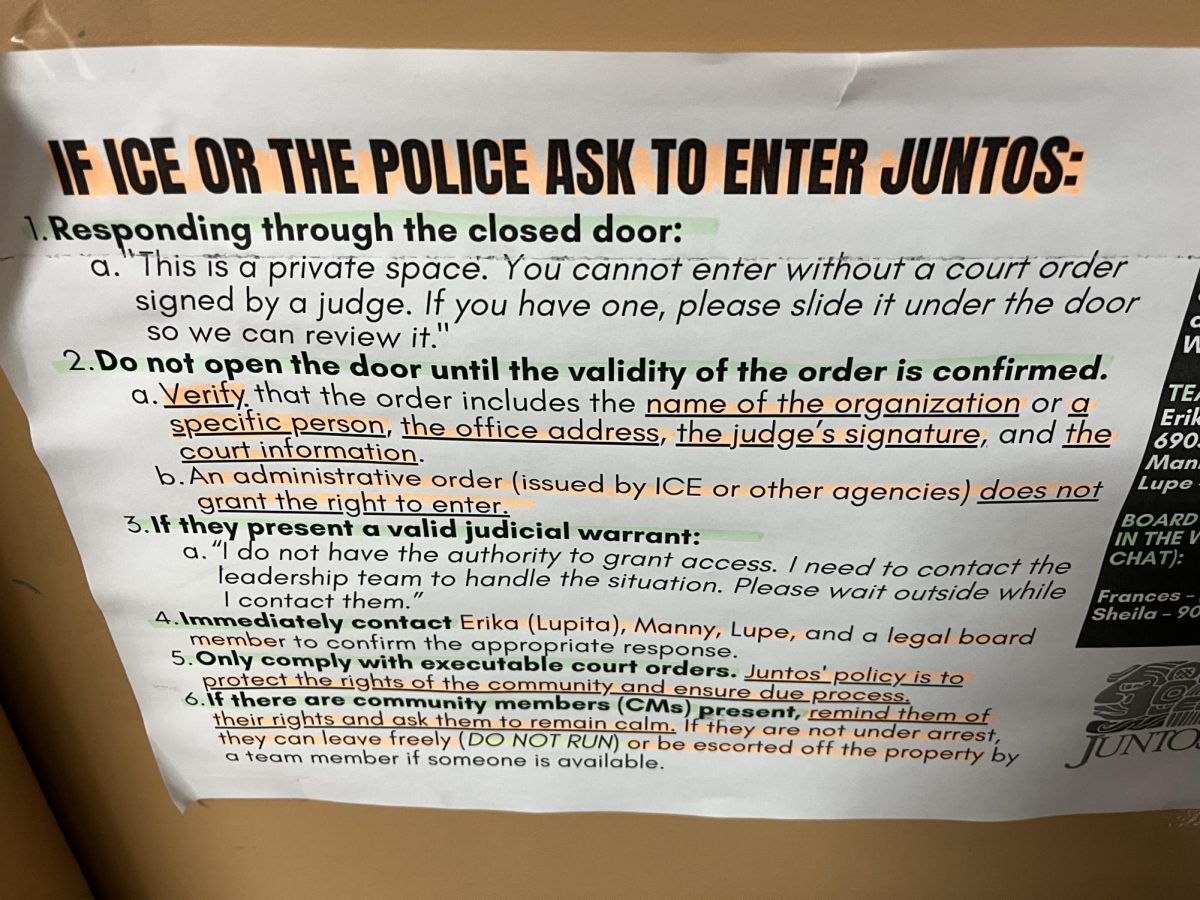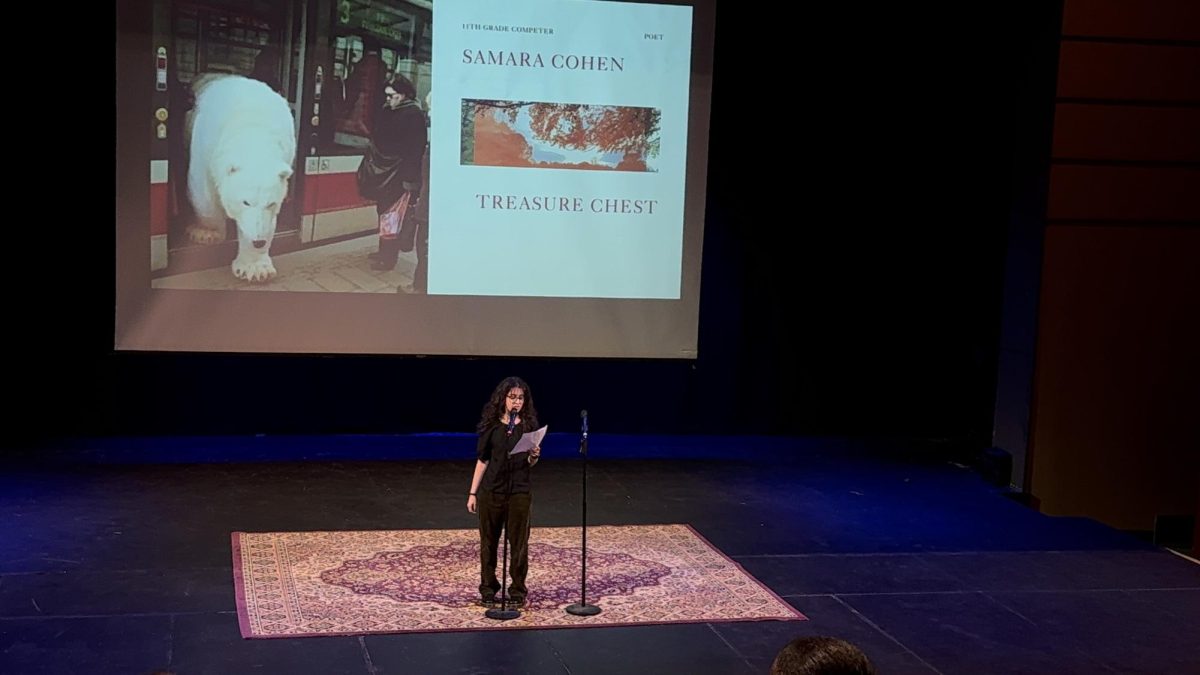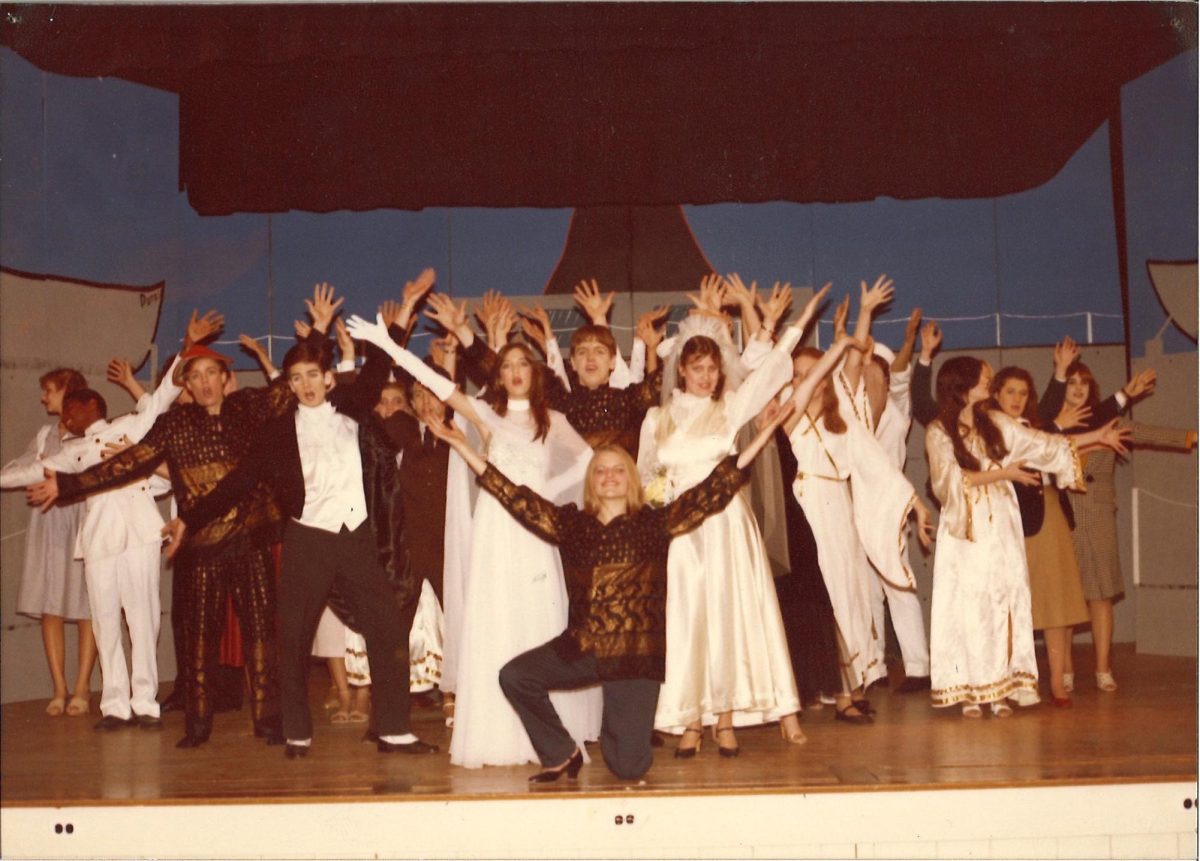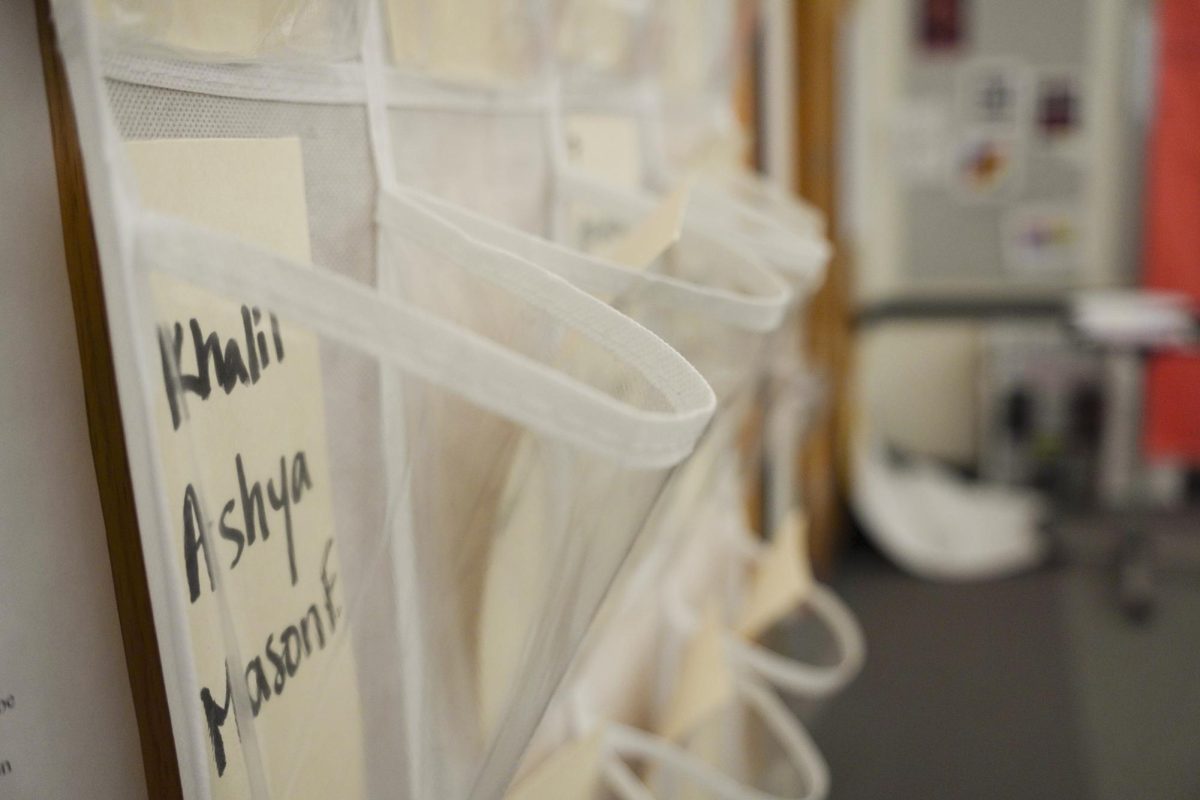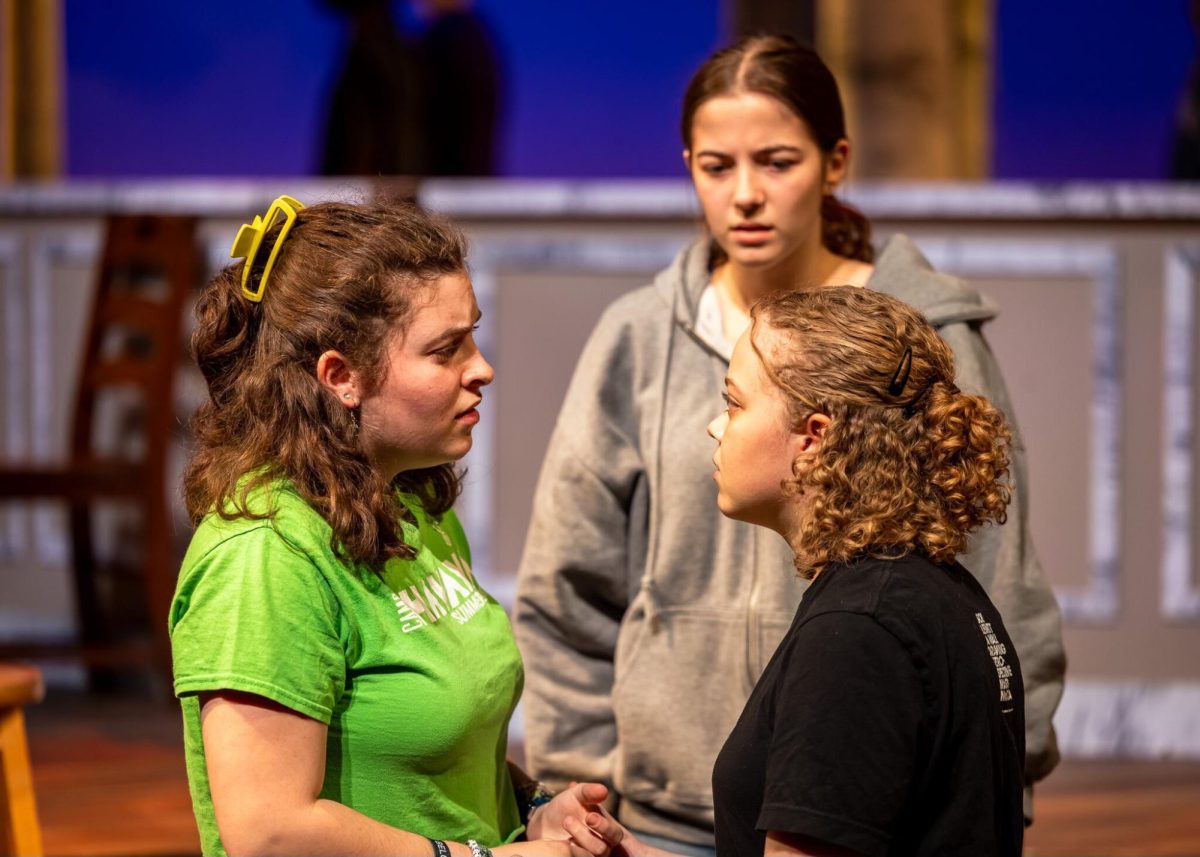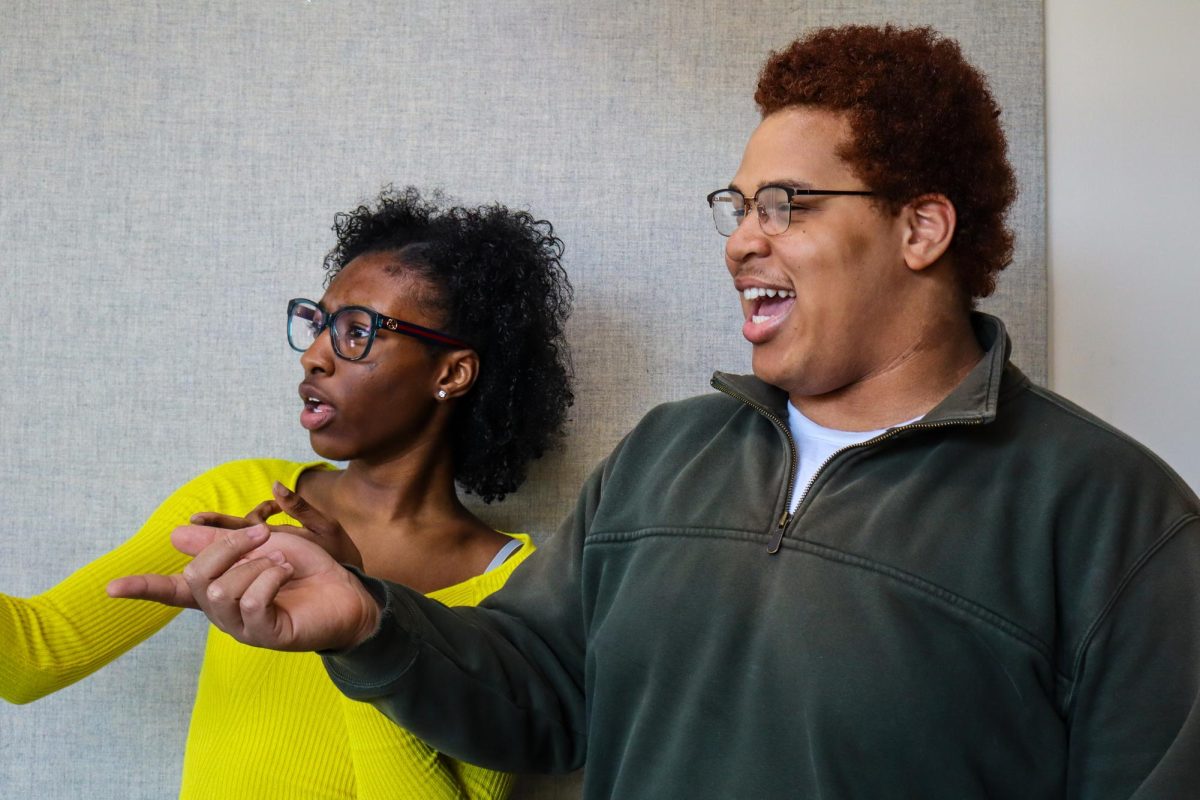Breaking news: Abington Friends Upper School Theatre has an intimacy director. That’s right, it’s not just for Bridgerton. Carly Bodnar served as the intimacy director for this year’s Upper School spring play, Three Sisters. But how did it all come about? Is this common for high school theater or is AFS an outlier? Finally, what in the world is an intimacy coordinator, anyway?
Bodnar said, “An intimacy director or intimacy choreographer is someone who choreographs moments of intimacy in a theatrical production and is an advocate for the actors in the production. An intimacy coordinator does this same work on film and screen.”
Since there were many intimate moments in the Three Sisters, Director Kittson O’Neill knew it would be best to work with an intimacy director.
O’Neill said, “Much of Three Sisters is about love and desire. …To really honestly tell that story on our stage I need our actors to fully portray passion and desire. That can be challenging for… young actors who are also navigating complex social waters with each other outside of rehearsal. This is why an IC [intimacy coordinator] is so helpful. They choreograph acts of intimacy within actors’ boundaries, keeping the narrative whole and also protecting the performer.”
When asked about exercises she uses when working with actors, Bodnar said, “boundary and consent exercises. This gives the actors a chance to check in with themselves, each other, and let me know what their boundaries are before choreographing.” Bodnar also mentioned regular boundary check-ins as boundaries are subject to change. These check-ins can be a detailed handshake or a verbal check-in and high five.
However, this is not the status quo for high school theater at large. Many schools in the greater Philadelphia area do not have an intimacy director. When polling some students from Conwell Eagan, Council Rock South, Hamilton High School North- Nottingham, and Notre Dame, they all said their schools had no intimacy director.
In fact, most of them did not even know what an intimacy director was. Once they were given the definition of an intimacy director, they all agreed on the importance of having one present in high school theater spaces.
Diana Newbauer of Council Rock High School said, “it can be very difficult and uncomfortable for young people to execute these scene[s]” without an intimacy coordinator. While one student has never been part of a show that required intimacy, they noted the value in having one, saying, “ …if the scene could be considered inappropriate for young audiences for intimate reasons, I do think a high school theater should have one.”
Another student shared an anecdote that highlighted the consequences of not having one saying, “Last year, my friend and I had a scene where we were supposed to almost kiss, but get interrupted by another character. When we first staged the scene, my director made a comment about how if the other actor missed his cue, we would actually have to kiss. We were never told how long to wait or how to even go about it, and both of us weren’t entirely comfortable doing it either. An intimacy coordinator would have been a huge help for all of us in the scene and would have made the situation much less awkward.”
Two students shared concern over setting boundaries, one said, “Some students don’t feel comfortable setting boundaries with directors or fellow cast mates. It’s important that students have a safe environment where they can shine.”
O’Neill aims to do just that: create a safe environment. When asked what she hopes to instill in her students by working with an intimacy coordinator, she said, “Respect: For themselves and their boundaries, for their scene partners and for the work… I want the actors in this show to come away from this process empowered to create moments of romance and intimacy in the future without compromising their safety, personal values or artistry.”
Bodnar said, “ Intimacy direction is not just about the choreography, but about boundary setting and consent. Boundary setting makes you think about yourself, what you need, what you want. I hope that more intimacy direction in high schools gives teenagers a better sense of what they need and want and then they feel the agency to speak up.”
AFS is at the forefront of a new movement aimed at protecting actors and their boundaries. The stories and opinions shared by students from schools without intimacy directors highlights the significance of this.
Director Kittson O’Neill has shown she is proactive in instilling respect in her actors through this decision and has set an example for other high school theater programs to take note of. The lessons learned through this experience will help the actors in their craft and beyond.
The ripple effect of young actors entering the acting industry who are aware of safety in intimacy coordination is connected to entering adulthood having a deep understanding of boundaries, could be massive if more high schools made it a priority to have intimacy directors.


